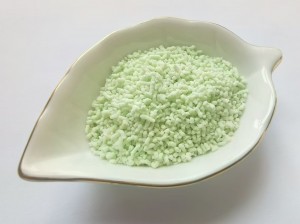Strawberries are a popular and delicious fruit that can be easily grown in home gardens or on a larger scale. To ensure healthy growth and a bountiful harvest, it is important to provide strawberries with the right nutrients through fertilization. Here are some key fertilizers that are essential for growing strawberries:
Nitrogen:
 |
Nitrogen is a crucial nutrient for plant growth and is essential for the development of healthy leaves and stems. A nitrogen-rich fertilizer can help promote vigorous growth and improve overall plant health. However, excessive nitrogen can lead to excessive vegetative growth at the expense of fruit production, so it is important to use nitrogen fertilizers in moderation. |
Phosphorus:
 |
Phosphorus is important for root development, flowering, and fruit production in strawberries. A phosphorus-rich fertilizer can help promote strong root growth and improve the plant’s ability to absorb nutrients from the soil. Phosphorus deficiency can result in poor fruit set and yield, so it is important to ensure that strawberries receive an adequate supply of phosphorus. |
Potassium:
 |
Potassium is essential for overall plant health and plays a key role in fruit development and quality. A potassium-rich fertilizer can help improve fruit size, flavor, and shelf life. Potassium deficiency can lead to weak plants, poor fruit quality, and increased susceptibility to diseases and pests, so it is important to provide strawberries with an adequate supply of potassium. |
Micronutrients:
When fertilizing strawberries, it is important to choose a balanced fertilizer that provides a mix of nitrogen, phosphorus, potassium, and micronutrients. It is also important to follow the recommended application rates and timing to avoid over-fertilization, which can lead to nutrient imbalances and environmental pollution. By providing strawberries with the right nutrients through fertilization, you can ensure healthy growth, high yields, and delicious fruits for your enjoyment.
Post time: Aug-27-2024





